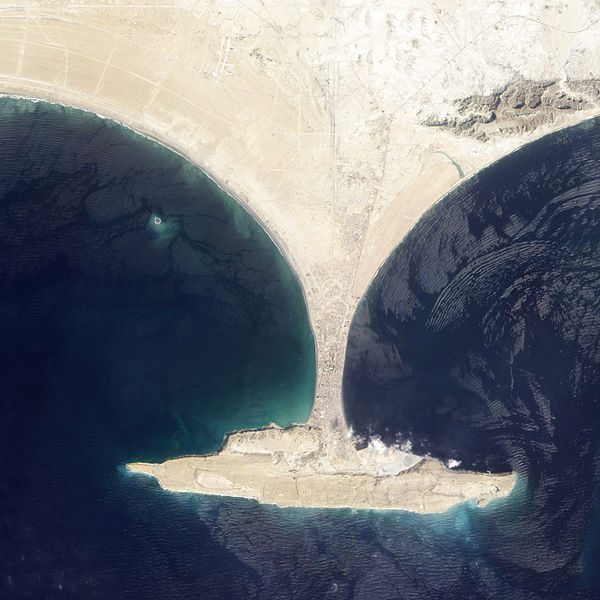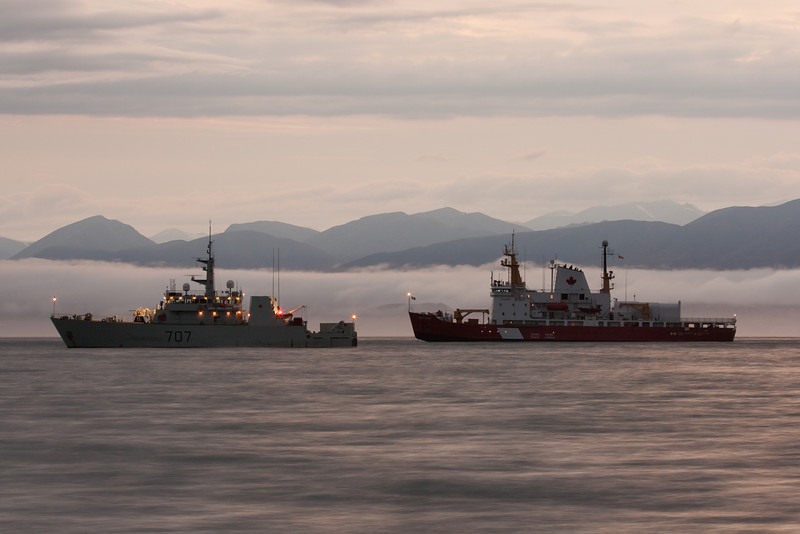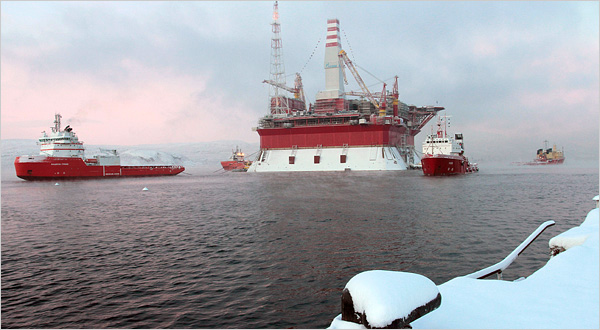Gwadar is a planned port city in the south of the province of Balochistan in Pakistan. It has the potential of transforming regional trade and giving a much needed boost to Pakistan’s economy but this project is not without obstacles.
[captionpix align=”left” theme=”elegant” width=”300″ imgsrc=”http://natoassociation.ca/wp-content/uploads/2013/12/gwadar.jpg ” captiontext=”A satellite view of Gwadar”]
In a country where there is little opportunity for socio-economic prosperity, that has a virtually paralyzed system of governance, and rampant security concerns which seem impossible to abate, a dim ray of hope lies in one of its most ambitious development projects, the Gwadar Port.
Gwadar port is situated on the Arabian Sea close to the strategic Strait of Hormuz. 20% of the world’s oil is transported through this strait each day and 77% of it goes to markets in Asia and the Pacific. The port is believed to play a pivotal role in transforming the geopolitical balance in the region and a major benefactor besides Pakistan is China.
For Pakistan, the port has the potential to bring in some much needed investment and consequently give a boost to the country’s economy. Besides this, the port gives Pakistan an opportunity to establish a permanent naval base in the Arabian Sea. A naval base is strategically ideal for Pakistan because it could freely operate a naval force while maintaining distance from Indian territories. The base could allow Pakistan to keep a check on the trade route to the rest of Asia, which can be of tactical value when it comes to relations with India.
China perhaps has much more to gain than Pakistan. The construction of the port would mean that China will not need to rely on other countries to secure their vessels travelling through Asia via the Malacca Strait – China’s current trade route. Consequently, Gwadar Port would serve as an alternative to the Malacca Strait, which is vulnerable to piracy and risk of naval blockade. With demand for oil increasing in the country, China wants Gwadar Port to become its hub for oil transportation. To do this, China has proposed $18 billion USD plan for building a road, a railway, and an oil pipeline connecting Gwadar to China’s Xinxiang province. If roads and pipelines transporting oil are constructed between China and Gwadar, then the distance of transporting goods to China from the Middle East and Africa would be greatly reduced.
China’s advances are an indication of the country’s growing economic and political influence in the region and the country is capitalizing on its long-term alliance with Pakistan. As a result India and the United States are wary of China’s expanding influence. The two have accused China of taking the opportunity to increase its naval presence in the Arabian Sea. However, India and the U.S maybe voicing unnecessary concern over the project which is far from complete given that the obstacles that China and Pakistan face cannot easily be overcome.
One of the many issues with the project is that Gwadar is located in the Pakistani province of Balochistan where there are existing security concerns relating to separatist militants. Furthermore, security concerns are complicated with the fact that Chinese goods will become a high profile target for the Tehreek-i-Taliban Pakistan (TTP). It is unclear at the moment how China and Pakistan will cope with the issue, particularly when it comes to constructing and securing highways and pipelines.
Pakistan must also be wary of how competition will affect its port operations. With Iran’s Chahbahar Trade Free Zone Port and similar ports in the United Arab Emirates, the country must prove to others (such as countries in landlocked Central Asia) that Gwadar will be a better alternative.
It is unclear if the development of the port will be transformational for the country’s economy. Earlier in October, Pakistani officials stated that the port will be fully operational in the next six months but these words do not carry much weight. The Port commenced construction in 2002 and officially became functional in 2008. Unfortunately due to contractual disputes, Gwadar Port has not been able to develop into a major port city. Perhaps Chinese leadership is the remedy. It remains, however, that this is one of the most ambitious projects to be taken place in Pakistan.




